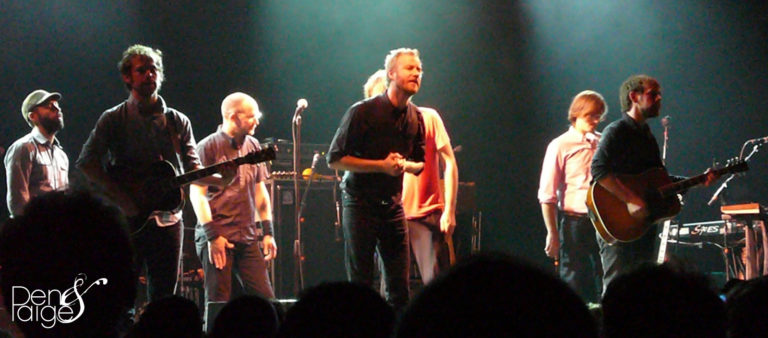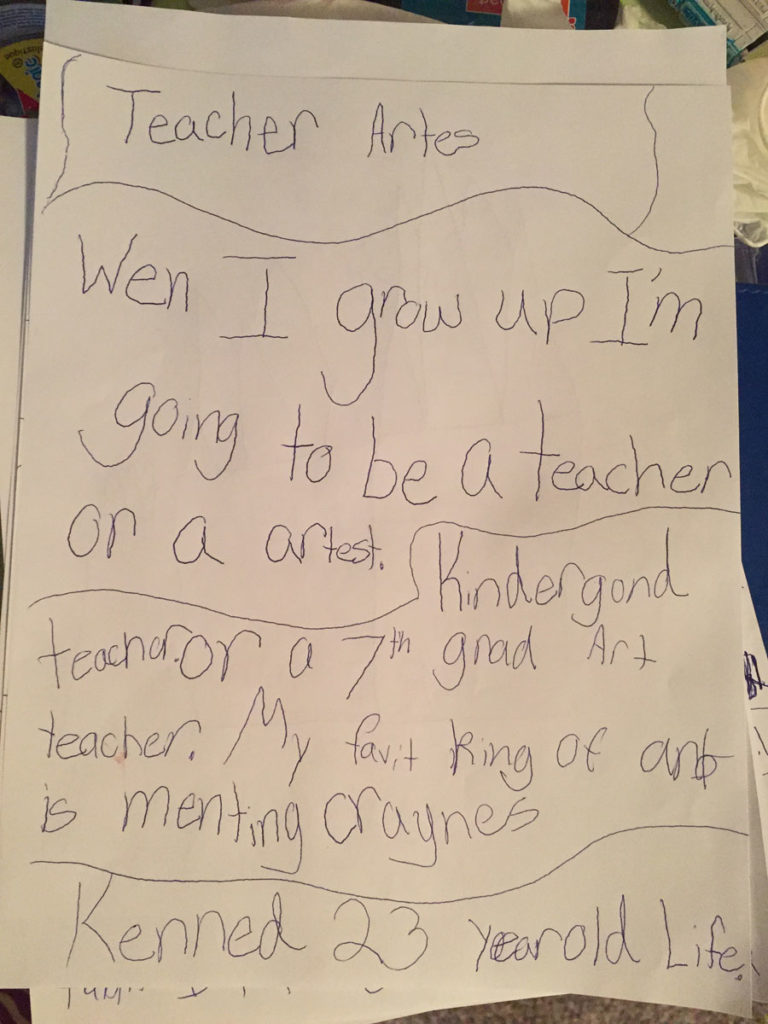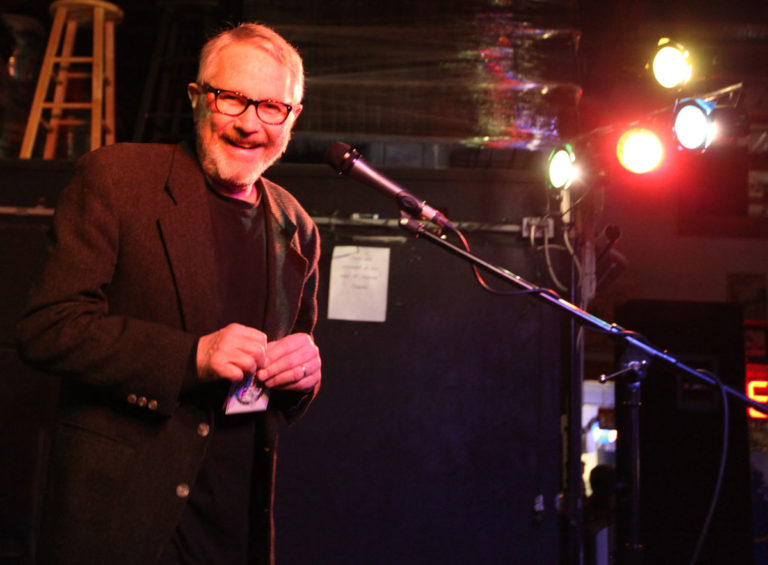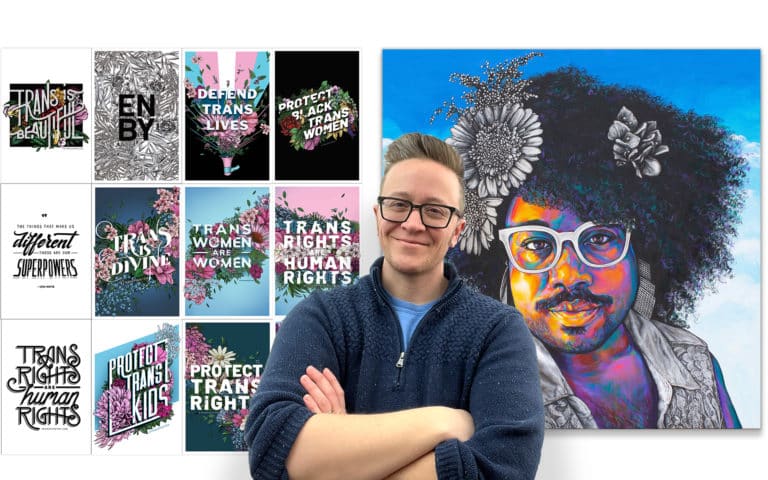A Retrospective of Music Culture in Billings, Montana
As I drop down Interstate 90 into the river valley that holds the “Magic City,” I swear: I won’t ever live in Billings, Montana.
The sun glints off a sprawling refinery that dominates the city’s eastern entrance. A sickly sweet smell smacks my face, making my teeth ache and my stomach curl. They’re processing sugar beets on the south side.
Somewhere in this landlocked dustbowl are 100,000 people sprawling west along the Yellowstone River, which winds across the city’s southern belly. Yet all I see as I enter the city are neon signs shouting “liquor” and “casino” amongst the transients curled in doorways. Downtown morphs from a gritty scene to a workingman’s paradise. Bank buildings dominate the landscape and hospitals stretch across the land like arteries, overtaking historic neighborhoods in the city’s core.
Surely this “magic” city has been misnamed.
I’m like many other Wyoming residents—I’ve come for the shopping and lack of sales tax. With my car stocked and the refineries in my rearview mirror, I’m confident. I will never live in Billings, Montana.
Yet in the months that follow, as I plow my way through the doldrums of living in a small Wyoming town without much opportunity, Billings beckons me. It’s small enough for a small town girl to feel at home, yet big enough and far enough away from Wyoming to feel like something progressive could actually happen.
I find myself dropping back into the city in which I swore I’d never reside with a U-Haul full of my belongings. I figure my journalism degree and background in newspaper and photography work will land me a dream job as a reporter or photographer at the largest newspaper in the state, The Billings Gazette. Seven interviews for seven different positions later, I’m in the least glamorous position possible: night-side paginator.
Once again, I question the “magic.”
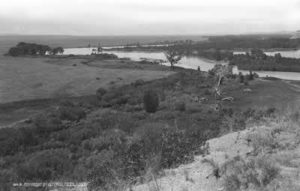 It was through the explorations of W. Milnor Roberts, a chief engineer for the Northern Pacific Railroad, that Billings came to be. As Roberts and his crew rode toward the site of present-day Billings, Roberts observed: “We have passed through the finest valley by far that I have seen in Montana” (Lubetkin 2002). Railroad financier Frederick H. Billings founded the city in 1882 and it quickly became a booming railroad town, hence the “Magic City” nickname. From its speedy beginnings, Billings has continued to boom, reaching a population milestone of 100,000 residents in 2006—the only city in Montana to do so (Kemmick 2006). I figure with all these sprawling urbanites, there must be some culturally enlightened folks. Even in Casper, the small Wyoming town where I grew up, there were pockets of culture—small clubs where the sweatiest punk rock music you could imagine rolled through town.
It was through the explorations of W. Milnor Roberts, a chief engineer for the Northern Pacific Railroad, that Billings came to be. As Roberts and his crew rode toward the site of present-day Billings, Roberts observed: “We have passed through the finest valley by far that I have seen in Montana” (Lubetkin 2002). Railroad financier Frederick H. Billings founded the city in 1882 and it quickly became a booming railroad town, hence the “Magic City” nickname. From its speedy beginnings, Billings has continued to boom, reaching a population milestone of 100,000 residents in 2006—the only city in Montana to do so (Kemmick 2006). I figure with all these sprawling urbanites, there must be some culturally enlightened folks. Even in Casper, the small Wyoming town where I grew up, there were pockets of culture—small clubs where the sweatiest punk rock music you could imagine rolled through town.
My life has always centered on music, from the early years of sneaking listens to Pink Floyd’s The Wall (my mother found it inappropriate music for children; my father was thrilled I took an interest in music of his generation) to my symphonic music pursuits to my teenage days of foul-mouthed punk rock. I was a symphony in the flautist by day, an elbow thrower in the mosh pits by night, attending concerts in divvy warehouse venues in Casper. When I started college at the University of Wyoming in Laramie I dropped the flute and picked up the bass when I formed a band with my roommate. I screamed, she sang and played guitar. All our songs were three chords. Our favorite compliment: we were a “cuter Bikini Kill” (Besides Green Day, which my roommate listened to incessantly, Kathleen Hanna and her Riot Grrrl movement was our inspiration).

In the tiny town of Laramie, Wyoming, we fought to bring musicians through town. This was the late 90s and the early 2000s, when the Internet was just developing into a tool for traveling bands. Musicians still relied heavily on word-of-mouth and moved from city to city based on the good word of other traveling bands. Details in publications such as Book Your Own Fucking Life let this traveling network know where there would be food and gas money.
In Laramie, we handmade flyers for shows and taped them to poles. We held concerts in garages that the police shut down and in warehouses that the fire department condemned. Bands slept on our floor, and we fed them ramen noodles and drank Pabst Blue Ribbon until the sun came up. It was during this time that I worked as entertainment editor for the college newspaper while pursuing my journalism degree.
Music was everywhere; music was my life.

The shift out of college into working life was a shock for me. My roommate formed another band—Stoli and the Beers; I went to intern at a newspaper in Sheridan, Wyoming. She toured the country in a van with smelly boys; I worked just about every day of the week as the paper’s only photographer for a disgustingly small salary. I’d be ambulance chasing one minute, photographing high school football the next. I was even sent to an accident outside of town involving a cow. Within the six-month mark I felt that I knew everyone in town, or at least everyone knew me. The chemistry in Sheridan was strange. It was a small western town that attracted rich residents who built sprawling McMansions for vacation homes, yet it was a poor city in many aspects without well-paying job opportunities. Poverty was high, drugs were easy to find, and life was tough if you weren’t independently wealthy.
Though I left Wyoming for opportunity (and to get the hell out of Sheridan), in Billings I begin to feel disconnected from music. I’m building ads and classified sections, and there is not a smidge of writing or photography opportunities in sight. Night after night, paper after paper, and I was stagnant.
I was withering away in this “magic” city.

So begins my musical quest. I take a review of a Bright Eyes album to the entertainment section’s editor, and he likes it. He asks if I’ve got more. I start writing album reviews, requesting advanced copies of my favorite artists. Suddenly pagination has meaning, as it led me to my savior—published articles with my byline.
I learn to overlook the oil fields flanking the city’s east and west entrances for the sandstone rimrocks that surround the northern edge of the city. The smell of burning sugar beets becomes the sweet fragrance of home and the deafening rumble of bike gangs a sweet reminder that summer is near. I smile at the homeless and ignore the casinos. I’m not even upset when our gas prices are high—despite the fact that we produce and export the stuff! I treasure spring rain when it comes for the smell it leaves on dirty asphalt, and I cherish the fires of a Montana sunset after a blistering summer day that make a cold microbrew taste better than I could have imagined.

A few years in the “Magic City” and I begin to take note of the sweet and welcoming sounds of bluegrass drifting out open doors in the summertime. I start gathering with collections of musicians on patios at downtown locales—the upright bass providing a beacon and reassurance that music is not far. At the local alehouses where brews are handcrafted, I’m sure to hear music pouring from doors amid the din of Montana Avenue traffic. Open mic jams also provide me reassurance that live music in Billings is a constant pursuit—each open mic revealing yet another budding talent. As temperatures steadily drop, inside the tiniest tavern a band will be set up in the corner, rolling through a sweaty set of jazz grooves and demonstrating they could care less about the weather.
I’ve been given access to music in a new and exciting way. I have countless moments of musical intensity, festivity, and joy. The musicians of Billings show me that the term “family” is broader than the intended definition. They support and mentor one another, often sharing instruments and the stage. The musical families in town rear their youth in a culture that has inspired the youngest amongst us to pick up guitars, take their voices to the stage, and start their own bands. I’m in through the backdoor, the one that reveals what happens behind the scenes. I spend time with local musicians, prodding them for their stories, finding the angle that will propel readers to come to their shows. I interview traveling bands via phone, working up previews to entice readers to come to the concerts. This time the venues are legal, yet the crowds are small, the musicians are poor, and it becomes increasingly difficult to predict what concerts will pack the house and what concerts will leave the promoter holding the bag.
In conversations, I gather that no one really knows why they stay in Billings. The city has always been perceived to be the “butt hole” of Montana, as a friend and local musician Ron Schuster once told me. To outsiders, our music isn’t cool enough, our restaurants aren’t hip enough, our people aren’t liberal enough, our concerts are the leftovers from other big markets—yet this is a false perception. Billings is what we continue to make of it.
Located on a rolling prairie 600 miles from any city of substantial size, Billings is isolated, shut off from the trends and cultures that sweep big cities. Those of us that value cultural qualities in our town continue to fight for them—even if it appears outwardly that the town’s residents don’t support it. In the coming years Billings could be the city we imagine it to be… the western hub, the must-stop location for bands and artists that we currently drive hundreds of miles to see…
Billings isolation may be the key to its magical properties, as the music that evolves here is distinctly original, inspired, and created from a sense of urgency. Billings is a big city with a small town mentality, yet it’s on the cusp of greatness. I just feel it. Those of us who choose to stay fight for a cultural scene that this city can’t create on its own. That’s why I stay. I want to be part of the story, not just read about it someday.



